YOUR CART
- No products in the cart.
Subtotal:
$0.00

This last year was full of eye-opening academic books that brought us new perspectives on our Buddhist tradition. Tricycle believes engaging with academic studies can deepen the insights that practice reveals, offering nuanced views from scholars with great depths of knowledge. While some of these may require a bit of perseverance and careful reading to complete, each one broadened our knowledge of Buddhist history and culture. We encourage you to explore these insights from the academy, allowing them to enlighten you on your Buddhist path.
Making Sense of Mind Only: Why Yogacara Buddhism Matters by William S. Waldron. Wisdom Publications, November 2023, 192 pp., $29.95, paper
The teachings of the Yogacara school are notoriously difficult to explain. Yet the influence of the Yogacarins, known for their deep meditative practices and thorough exploration of the dharmic understanding of consciousness, cannot be overstated. Middlebury College professor William Waldron untangles the complex web of the Yogacara teachings with humor, insight, and a comprehension of the school’s importance and contemporary relevance. The Buddha paid particular attention to how our senses influence our perception of reality, and this book contributes to grasping his intention.
Obstacles to Stillness: Thoughts, Hindrances, and Self-Surrender in Evagrius and the Buddha by Shodhin K. Geiman. Fortress Press, December 2023, 219 pp., $32.00, paper
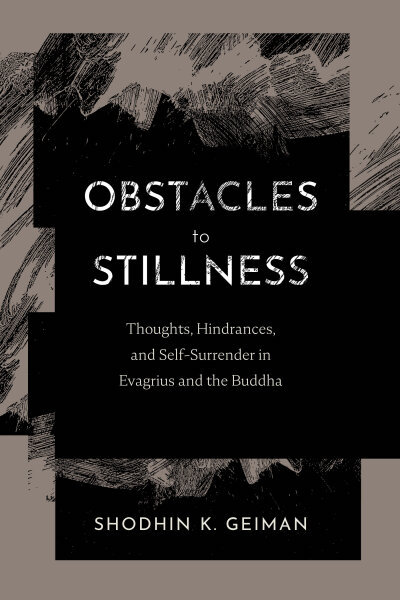
In Obstacles to Stillness, Shodhin K. Geiman bridges Buddhist and Christian traditions to explore the universal struggle against inner obstacles to stillness. Drawing on Buddhist hindrances and Evagrius Ponticus’s temptations, Geiman reveals shared challenges with sharp wit and scriptural insight. His comparative approach offers practical wisdom for navigating anger, doubt, and restlessness on the contemplative path. Thought-provoking and accessible, this book is a valuable guide for anyone seeking stillness, whether through Buddhist meditation or Christian ascetic practice. Read the full Tricycle review.
Ashoka: Portrait of a Philosopher King by Patrick Olivelle. Yale University Press, January 2024, 356 pp., $35.00, hardcover
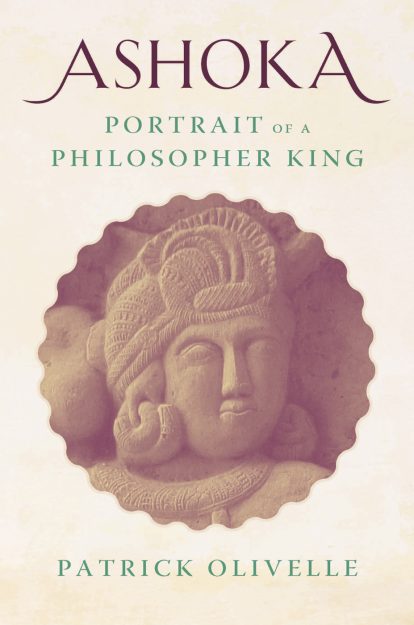 Patrick Olivelle’s new book draws from ancient rock and pillar edicts, donative inscriptions, and pillar capitals to provide fresh insights into the life and legacy of King Ashoka (c. 304–232 BCE). A professor of Sanskrit and Indian religions at the University of Texas at Austin, Olivelle discusses Ashoka’s roles as a devoted lay Buddhist and political ruler. As a king, Ashoka was concerned about maintaining the Buddhist sangha’s health, yet his public edicts transcended sectarian divides. In what Olivelle describes as a “proto-secular” dharma, Ashoka used universalist ideas to form an “imagined community” of people united in a shared sense of the dharma. Asokha’s dual roles help explain why Buddhists continue to invoke him as the ideal ruler and why the modern Indian state has adopted his symbols and ideas. Read the full Tricycle review.
Patrick Olivelle’s new book draws from ancient rock and pillar edicts, donative inscriptions, and pillar capitals to provide fresh insights into the life and legacy of King Ashoka (c. 304–232 BCE). A professor of Sanskrit and Indian religions at the University of Texas at Austin, Olivelle discusses Ashoka’s roles as a devoted lay Buddhist and political ruler. As a king, Ashoka was concerned about maintaining the Buddhist sangha’s health, yet his public edicts transcended sectarian divides. In what Olivelle describes as a “proto-secular” dharma, Ashoka used universalist ideas to form an “imagined community” of people united in a shared sense of the dharma. Asokha’s dual roles help explain why Buddhists continue to invoke him as the ideal ruler and why the modern Indian state has adopted his symbols and ideas. Read the full Tricycle review.
Candrakīrti’s Introduction to the Middle Way: A Guide by Jan Westerhoff. Oxford University Press, January 2024, 296 pp., $29.95, paper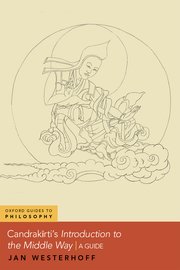
The 3rd-century Indian monk Nagarjuna forever changed Mahayana Buddhist thought, and the 7th-century scholar-monk Candrakīrti is one of the few commentators on Nagarjuna’s teaching to reach an equal level of importance. Jan Westerhoff, a University of Oxford professor of Buddhist philosophy, takes up the classic commentary mantle and offers a detailed explication of Candrakīrti’s Introduction to the Middle Way. Meant to be read side by side with the text, Westerhoff’s introduction, comprehensive commentary, and helpful synopsis illuminate this critical text of Nagarjuna’s Madhyamaka school. Practitioners of Tibetan Buddhism will find this particularly useful.
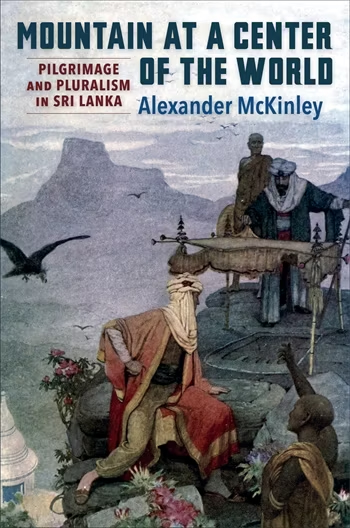 Mountain at a Center of the World: Pilgrimage and Pluralism in Sri Lanka by Alexander McKinley. Columbia University Press, February 2024, 344 pp., $35.00, paper
Mountain at a Center of the World: Pilgrimage and Pluralism in Sri Lanka by Alexander McKinley. Columbia University Press, February 2024, 344 pp., $35.00, paper
Called many names over the centuries, Sri Pada, or the mountain of the Buddha’s footprint, has long been a popular pilgrimage destination for a host of faiths. Stitching together a complex history of beliefs and cultures, McKinley reveals a ritual space with overlapping social, economic, political, and religious interests that must negotiate paths through an ever-changing sacred landscape. Through stories, poetry, songs, myths, and archival research, we learn about a global history of the human search for meaning and belonging and a planetary history where humans are secondary to the mountain’s existence and, inevitably, transitory.
Esoteric Pure Land Buddhism by Aaron P. Proffitt. University of Hawaii Press, April 2024, 445 pp., $35.00, paper
Scholar Aaron Proffitt’s compelling and rigorous exploration confronts long-held Western misconceptions about Buddhist practices centered on Amitabha’s Pure Land and its importance within the Japanese and pan-Asian Buddhist traditions, challenging us to reimagine Buddhism as we know it. Diving into Japanese Pure Land’s esoteric aspects and providing never-before-translated texts, he masterfully dispels the notion of Pure Land Buddhism as merely devotional while showcasing its vital place within Buddhist thought and practice. This book will have you rethinking preconceptions and appreciating the tradition’s nuanced, transformative potential. It’s a must-read for scholars and serious practitioners alike.
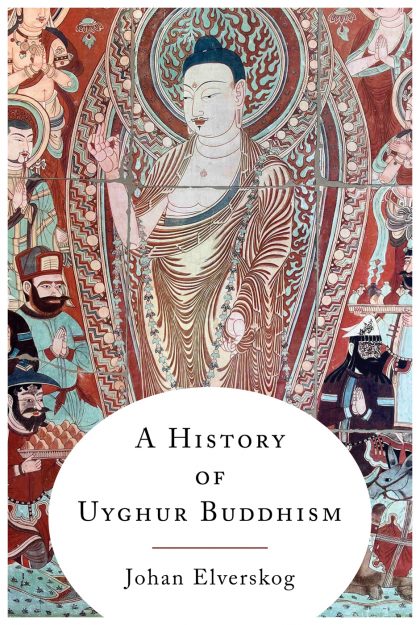
A History of Uyghur Buddhism by Johan Elverskog. Columbia University Press, June 2024, 278 pp., $35.00, paper
Johan Elverskog’s A History of Uyghur Buddhism offers a sweeping exploration of Uyghur Buddhism from the 6th to the 15th centuries, focusing on its adaptability amid geopolitical, economic, and religious changes. Utilizing a wide range of source material, Elverskog reveals how the Uyghurs shaped and were shaped by Buddhist traditions, bridging their Manichaean roots and later Islamic influences. For those interested in the history of Central Asia, this book fills in the historical gaps with a cultural group that has been largely unknown in popular media. This book is destined to become essential reading in the academy. Read the full Tricycle review.
The Women Who Ruled China: Buddhism, Multiculturalism, and Governance in the Sixth Century by Stephanie Balkwill. University of 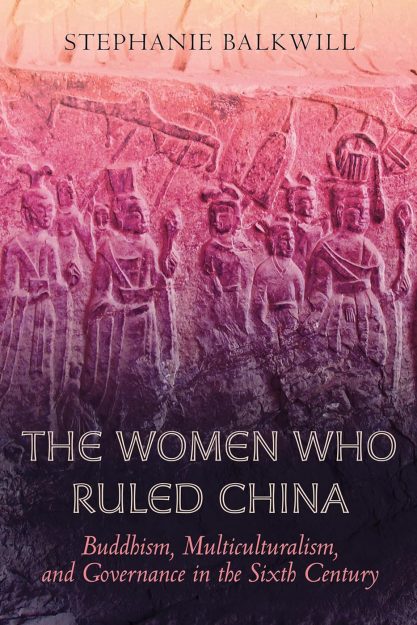 California Press, August 2024, 272 pp., $34.95, paper
California Press, August 2024, 272 pp., $34.95, paper
Stephanie Balkwill’s The Women Who Ruled China looks at the life of Empress Dowager Ling, a 6th-century ruler who transformed the capital city of Luoyang into a Buddhist hub of dazzling architecture, culture, and power. Providing translations of Ling’s recorded history and reinterpreting it through a Buddhist feminist framework, Balkwill explores her Buddhist patronage and the networks of powerful women that shaped the Northern Wei dynasty. The portrait of a complex ruler, this book reimagines Ling’s historical contribution and raises broader questions about Buddhism’s impact on governance and the social roles of women in Chinese history. Read the full Tricycle review.
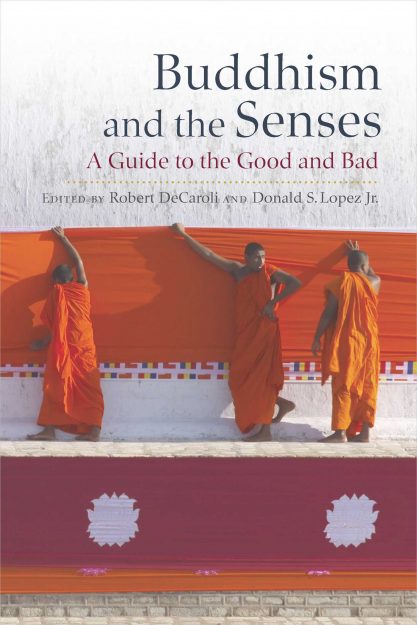
Buddhism and the Senses: A Guide to the Good and Bad edited by Robert DeCaroli and Donald S. Lopez Jr. Wisdom Publications, September 2024, 264 pp., $39.95, hardcover
Buddhism is often stereotyped as a world-denying religion, prizing austerity and denigrating sensory pleasure as the root of craving. And yet, as demonstrated in Buddhism and the Senses, the whole picture is much more complex. This edited volume features essays from ten prominent scholars that probe the subtleties of Buddhism’s attitude toward material practice and bodily experience. Each author takes on one of the five senses in its positive or negative instantiation. Yet the chapters quickly unsettle this binary, for instance, when “bad” sights, sounds, and smells provide pathways to liberation. Ultimately, the collection asks us to reconsider our assumptions about what makes a sensation good or bad. Read the full Tricycle review.
Saraha: Poet of Blissful Awareness by Roger R. Jackson. Shambhala Publications, November 2024, 588 pp., $34.95, paper
When Roger R. Jackson was an undergraduate at Wesleyan, he came across the verses of Saraha, a 10th-century mystic known for his fierce exhortations to cut through the layers of delusion in order to experience the true nature of mind directly. While Saraha is considered one of the founders of the Vajrayana tradition and has been incorporated into a number of Tibetan Buddhist lineages, there have been relatively few academic examinations of his full body of work and its ongoing legacy. With Saraha: Poet of Blissful Awareness, Jackson presents the first thorough treatment of Saraha’s context, life, works, poetics, and teachings, including new translations of nearly all of Saraha’s dohas, or spontaneous songs. Listen to Jackson discuss Saraha’s fierce critique of nearly every possible religious and social standpoint on a recent episode of Tricycle Talks, plus read one of the legends surrounding him in this excerpt from the book.